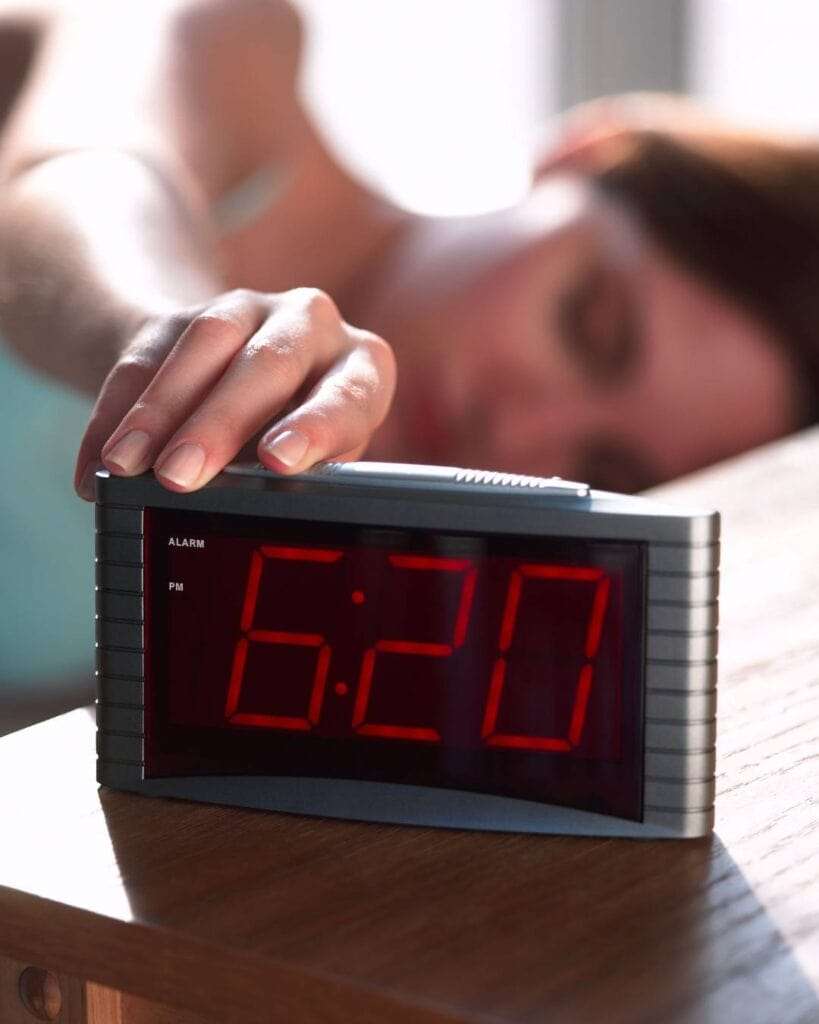

Does CBD Help You Sleep
Are you tired of tossing and turning all night? Do you find yourself waking up feeling groggy and unfocused? If you’re searching for a natural solution to improve your sleep, CBD may be the answer.
This powerful compound, found in cannabis plants, has gained popularity in recent years for its potential benefits on sleep quality. CBD interacts with the endocannabinoid system in your body to regulate various functions, including sleep. By affecting serotonin levels, CBD can promote relaxation and reduce anxiety, leading to improved sleep quality.
But before you start incorporating CBD into your bedtime routine, it’s important to understand how it works and what dosage is right for you. In this article, we’ll explore the science behind CBD’s effects on sleep and provide tips for using it safely and effectively.
Key Takeaways
- CBD can interact with the endocannabinoid system and affect serotonin levels to regulate sleep, making it a natural compound that can help people sleep.
- CBD has been shown to improve sleep quality and reduce nightmares in individuals with PTSD, as well as reduce anxiety and improve sleep in people with anxiety disorders.
- Starting with a low dose and gradually increasing it until the right amount is found is important when using CBD for sleep. Tinctures are popular for sleep because they allow for easy dosage adjustment, while capsules or edibles provide a consistent dose.
- In addition to using CBD, creating a consistent sleep schedule, relaxing bedtime routine, avoiding caffeine and alcohol, keeping the bedroom cool and dark, limiting screen time, and managing stress can also improve sleep.

Introduction to CBD
If you’re struggling to get a good night’s sleep, you may have heard about CBD.
CBD is a natural compound found in cannabis that has been shown to improve sleep quality by promoting relaxation and reducing anxiety.
Getting enough quality sleep is essential for overall health and well-being, so it’s worth exploring how CBD can help you achieve better sleep.
Explanation of CBD
CBD is a natural compound derived from cannabis that has become increasingly popular for its potential to promote relaxation, alleviate pain and anxiety, and improve sleep quality. CBD interacts with the endocannabinoid system in the body, which helps regulate various physiological processes such as mood, appetite, and immune response. It also affects serotonin levels in the brain, which can impact sleep patterns.
One of the main reasons people use CBD for sleep is because it promotes relaxation and reduces anxiety. By calming the mind and body, CBD creates an optimal environment for restful sleep. Additionally, CBD has been shown to alleviate pain, making it an effective tool for those who struggle with chronic pain-related insomnia.
Learn more about What is CBD Oil.
Overall, CBD offers a promising option for those looking to improve their sleep quality without relying on traditional pharmaceuticals or other potentially harmful substances.
Importance of sleep
Getting enough restful sleep is crucial for maintaining good physical and mental health, as it affects everything from memory and mood to immune function and metabolism. Sleep deprivation can lead to a host of negative consequences, including decreased cognitive performance, increased risk of accidents, weakened immune system, and increased risk of chronic diseases such as diabetes and heart disease.
To ensure that you’re getting the most out of your sleep, it’s important to practice good sleep hygiene. This means creating a consistent sleep schedule, avoiding caffeine and alcohol before bed, keeping the bedroom cool and dark, limiting screen time before bedtime, and managing stress levels throughout the day.
If you’re struggling with sleep disorders or mental health issues such as anxiety or depression that are affecting your ability to get adequate restful sleep, it may be helpful to seek professional help from a healthcare provider who can recommend treatments or therapies to improve your overall well-being.
By prioritizing good quality sleep, you can support your physical and mental health for optimal functioning in all areas of life.

CBD and Sleep
If you struggle with insomnia or have trouble sleeping through the night, CBD may be able to help. CBD is a natural compound found in cannabis that can interact with your body’s endocannabinoid system to regulate sleep.
To use CBD for sleep, start with a low dose and gradually increase until you find the right amount for you.
CBD for Sleep
Do you struggle with difficulty falling asleep? Getting quality sleep is crucial for your overall health and well-being. Poor sleep can lead to a host of negative effects, including fatigue, irritability, and decreased cognitive function.
Fortunately, there are several solutions for better sleep, including incorporating CBD into your routine. Studies have shown that CBD can help regulate sleep by interacting with the endocannabinoid system and reducing anxiety and pain.
Difficulty falling asleep
Trouble drifting off to sleep can feel like trying to catch a slippery fish in a pond, but CBD has been shown to improve sleep quality and reduce the time it takes to fall asleep.
If you’re struggling with falling asleep, there are several tips for relaxation that may help. Herbal remedies such as chamomile tea or valerian root can promote calmness and drowsiness, while mindfulness techniques like meditation or visualization can quiet racing thoughts.
Practicing good sleep hygiene by keeping your bedroom dark and cool, limiting screen time before bed, and establishing a consistent bedtime routine can also aid in falling asleep faster. Additionally, breathing exercises such as deep belly breathing or progressive muscle relaxation can relax the body and mind, making it easier to drift off into dreamland.
Incorporating CBD into your routine may be another helpful tool for improving your ability to fall asleep quickly and peacefully.

Importance of sleep
Getting enough restful sleep is crucial for maintaining a healthy mind and body, as it allows us to recharge and prepare for the day ahead. The benefits of getting enough quality sleep include improved cognitive function, better mood, increased energy levels, and overall physical health.
However, the risks of not getting enough sleep can include weight gain, weakened immune system, increased risk of chronic diseases such as diabetes or heart disease, and impaired mental health. Sleep deprivation effects can range from irritability and difficulty concentrating to hallucinations and even psychosis in extreme cases.
To prevent these negative effects of sleep deprivation, implementing good sleep hygiene tips such as creating a consistent bedtime routine that includes winding down before bed without screens or caffeine can be helpful. Additionally, treating any underlying sleep disorders such as insomnia or sleep apnea may also improve overall sleep quality.
Mental health is closely linked with adequate amounts of quality restful sleep; those with depression or anxiety often experience disrupted sleeping patterns which can exacerbate their condition. Therefore, making sure you’re getting sufficient amount of restful sleep is important in ensuring optimal physical and mental well-being.
Effects of poor sleep
Lack of quality sleep can have detrimental effects on both your physical and mental health. This includes decreased immune function and an increased risk of depression. It’s crucial to prioritize the importance of rest and practice good sleep hygiene to avoid these negative outcomes.
Sleep deprivation consequences include a higher likelihood of accidents, impaired judgment, and decreased productivity. Many people struggle with insomnia or other conditions that impact their ability to get enough rest, leading to sleep disorders prevalence in today’s society.
Poor sleep can also have a significant impact on mental health, exacerbating symptoms of anxiety and depression. To avoid these negative outcomes, it’s important to make sure you are getting enough high-quality sleep each night. This can be achieved by following healthy habits like sticking to a consistent sleep schedule, avoiding caffeine and alcohol before bed, keeping your bedroom cool and dark, and practicing stress management techniques.
Solutions for better sleep
To improve your sleep, try establishing a relaxing bedtime routine that includes winding down activities like reading or taking a warm bath. Incorporate relaxation techniques such as deep breathing or meditation to calm your mind and prepare for restful sleep.
Practice good sleep hygiene, such as limiting screen time before bed and keeping the bedroom cool and dark, to improve your chances of falling asleep quickly and staying asleep throughout the night.
Cognitive behavior therapy may be helpful in identifying and addressing underlying mental health issues that may be contributing to poor sleep. Additionally, melatonin supplements or herbal remedies like valerian root or chamomile tea may aid in promoting relaxation and inducing sleepiness.
By incorporating these solutions into your daily routine, you can improve the quality of your sleep and wake up feeling refreshed each morning.
How CBD can help with sleep disorders
Now that you’ve learned about solutions for better sleep, let’s dive into how full spectrum CBD can help with sleep disorders. CBD dosing is important when using this natural remedy to improve your sleep quality.
Not only does CBD promote relaxation and reduce anxiety, but it also alleviates pain. This makes it a powerful alternative therapy for those suffering from chronic pain-related sleep issues.
In addition to incorporating CBD into your routine, practicing good sleep hygiene and trying other natural remedies like lavender essential oils or melatonin supplements can also lead to better rest. By taking these steps towards improving your overall health and wellness, you’ll be on the path towards achieving a more restful night’s sleep.
Benefits of CBD for sleep
If you’re struggling to get a good night’s rest, incorporating CBD into your sleep routine could potentially improve your overall sleep quality and alleviate symptoms of anxiety and chronic pain.
CBD is known for its ability to promote relaxation, reduce anxiety, and alleviate pain, making it an effective tool for improving sleep quality. You can take CBD in various forms such as tinctures or edibles that provide a consistent dose or adjust the dosage easily with tinctures.
For individuals with PTSD, CBD has been shown to reduce nightmares and improve sleep quality.
The optimal dosage of CBD varies depending on weight, severity of sleep issues, and tolerance to CBD. However, long-term use may lead to tolerance requiring higher doses for the same effects.
It’s essential to consult with a doctor before using any supplement like CBD as it can interact with certain medications.
How to Use CBD for Sleep
If you’re considering using CBD for sleep, it’s important to know how to use it effectively. There are several methods of consumption available, including tinctures, capsules, edibles, and topicals.
Dosage recommendations vary depending on weight and severity of sleep issues, so it’s important to start with a low dose and gradually increase until you find the right amount. Additionally, while CBD is generally considered safe, potential side effects may include dry mouth, dizziness, and changes in appetite or mood.
Methods of consumption
Starting with a low dose and gradually increasing it until finding the right amount is crucial when exploring different methods of consuming CBD for sleep. Choosing a high-quality product from a reputable brand like Bluegrass Hemp Oil is also important.
Tinctures are popular for their easy dosage adjustment, while capsules or edibles provide a consistent dose. Tincture benefits include faster absorption into the bloodstream and greater control over dosing, while edible options offer tasty flavors that can make taking CBD more enjoyable.
Dosage tips vary depending on weight, severity of sleep issues, and tolerance to CBD. It’s important to find your preferred flavors and be aware of potential drawbacks such as long-term use leading to tolerance requiring higher doses for the same effects.
Overall, experimenting with different consumption methods can help you find what works best for you in achieving better sleep quality and overall well-being with CBD.
Dosage recommendations
You want to make sure you’re taking the right amount of CBD for optimal sleep benefits, so it’s important to consult with a doctor and start with a low dose that can gradually be increased until you find your sweet spot.
The optimal dosage of CBD for sleep is weight dependent and varies from person to person, so an individualized dosage is necessary.
It’s important to maintain consistency in use and not exceed the recommended dosage as long-term use can lead to tolerance.
Consultation with a doctor before use is essential, especially if you’re taking medication that may interact with CBD.
Gradual increase in dosage is key for finding the right amount of CBD for your body, but always follow your doctor’s advice when adjusting your intake.
Potential side effects
Be mindful of potential side effects when using CBD for sleep, as some individuals may experience symptoms such as dry mouth, dizziness, or changes in appetite. Common side effects include fatigue and diarrhea, although these are typically mild and temporary.
It’s important to follow dosage recommendations and start with a low dose before gradually increasing it until you find the right amount. Additionally, be aware of potential interactions with other medications you may be taking.
Long term use of CBD can lead to tolerance, requiring higher doses for the same effects. While CBD is generally considered safe, there are safety concerns related to its use during pregnancy or breastfeeding.
Always consult with your doctor before using CBD or any supplement to ensure it’s safe for you to use.
Does CBD Help with Insomnia?
If you’re struggling with insomnia, CBD may be a potential solution worth exploring. CBD is a natural compound found in cannabis that has been shown to interact with the body’s endocannabinoid system and affect serotonin levels, which can regulate sleep.
Research suggests that CBD can improve sleep quality and duration, reduce anxiety, and alleviate pain without causing the psychoactive effects associated with THC. It’s important to ensure the safety of CBD use by consulting with your doctor before use and choosing high-quality products from reputable brands like Bluegrass Hemp Oil.
Research on CBD and insomnia
Now that you understand how CBD works, let’s dive into the research on CBD and insomnia.
Many studies have shown that CBD can be a promising alternative therapy for insomnia, as it promotes relaxation and reduces anxiety. In fact, one study found that CBD improved sleep quality in 66.7% of participants with insomnia.
Additionally, combining CBD with melatonin (a natural sleep aid) has been shown to improve sleep onset latency (the time it takes to fall asleep) and total sleep time in people with insomnia.
It’s important to note that while CBD may help improve sleep, implementing good sleep hygiene tips such as creating a consistent bedtime routine, avoiding caffeine and alcohol before bed, keeping the bedroom cool and dark, limiting screen time before bed, and managing stress are also crucial for achieving better sleep quality.
Incorporating natural sleep aids like CBD can complement these habits and improve overall wellbeing by reducing the impact of sleep disorders on health.
How CBD can help with pain management
Incorporating natural remedies like CBD into a comprehensive pain management plan may provide relief for various types of discomfort, ultimately leading to better sleep quality.
CBD is known for its pain relief and inflammation reduction properties, which can help alleviate chronic pain from conditions such as arthritis or fibromyalgia.
Additionally, CBD promotes muscle relaxation and can reduce stress levels, making it an effective tool for managing acute pain from injuries or surgeries.
By reducing anxiety and promoting relaxation, CBD can also help individuals fall asleep faster and stay asleep longer.
When combined with other healthy sleep habits, CBD can be a powerful tool for achieving better overall health outcomes.
Conclusion
So, does CBD help you sleep? The answer is that it depends on the individual and their unique circumstances. While many people have reported positive effects from using CBD for sleep, it’s important to remember that research in this area is still limited.
However, if you’re struggling with sleep and considering trying CBD, there are some healthy habits you can incorporate to improve your chances of success. This might include practicing good sleep hygiene by sticking to a regular bedtime routine, limiting caffeine and alcohol intake before bed, and creating a comfortable sleeping environment.
By combining these habits with the potential benefits of CBD, you may find yourself getting better quality rest than ever before. Ultimately, it’s up to you to decide whether or not CBD is right for your needs – but with proper research and guidance from a healthcare professional, it could be a valuable addition to your sleep routine.
Frequently Asked Questions
Are there any potential side effects of using CBD for sleep?
When considering using CBD for sleep, it’s important to be aware of potential side effects.
Research findings suggest that CBD is generally well-tolerated and safe when used in appropriate doses. However, like any supplement or medication, there may be some risks involved.
It’s also possible that CBD could interact with other medications you’re taking, so we suggest talking with your prescribing doctor before starting with CBD.
To reduce the risk of side effects and achieve optimal sleep quality with CBD, it’s recommended to start with a low dose and gradually increase it until you find the right amount for your individual needs.
Natural alternatives such as creating a consistent sleep schedule, practicing relaxation techniques like meditation or deep breathing exercises, and limiting screen time before bed can also improve sleep quality without the potential risks associated with supplements or medications.
Always consult with a healthcare professional before using CBD or any supplement to ensure its safety and effectiveness for your specific needs
Can CBD be used in combination with prescription sleep aids?
Combining CBD with prescription sleep aids is a topic of debate among medical professionals. While some experts believe that the two can work together to provide better sleep outcomes, others caution against potential safety risks and lack of long-term efficacy.
It’s important to take into account the timing of each medication, as well as any potential interactions or side effects. Additionally, long-term use of both CBD and prescription sleep aids may lead to tolerance and require higher doses for the same effects.
As such, it’s crucial to weigh the pros and cons and consult with a healthcare provider before combining CBD with prescription sleep aids for improved sleep quality.
Is it safe to drive or operate machinery after taking CBD for sleep?
Can you safely drive or operate machinery after taking CBD for sleep? It’s important to consider the dosage of CBD taken and how it affects your REM sleep.
While CBD has been shown to improve sleep quality, it may also cause drowsiness and impair driving ability. It’s recommended to start with a low dose and avoid taking CBD before driving or operating heavy machinery until you know how it affects you personally.
Additionally, while some people use melatonin as a sleep aid, CBD offers an alternative option without the risk of dependency. For those with sleep disorders, CBD may be a helpful tool in improving overall sleep quality when used in combination with other healthy habits such as creating a consistent bedtime routine and managing stress levels.
Can CBD be used for long-term sleep improvement or is it only effective for short-term use?
Long-term benefits of using CBD for sleep improvement are still being studied, but many users report positive experiences. Dosage recommendations vary depending on weight and severity of sleep issues, but starting with a low dose and gradually increasing is recommended.
CBD can help regulate your sleep cycle by promoting relaxation and reducing anxiety, which can lead to better quality sleep over time. However, it’s important to note that long-term use of CBD may lead to tolerance and require higher doses for the same effects.
It’s also important to consider alternative sleep remedies such as creating a consistent sleep schedule, practicing good sleep hygiene habits, and managing stress. Always consult with a doctor before using CBD or any supplement for long-term use.
